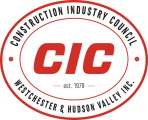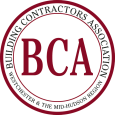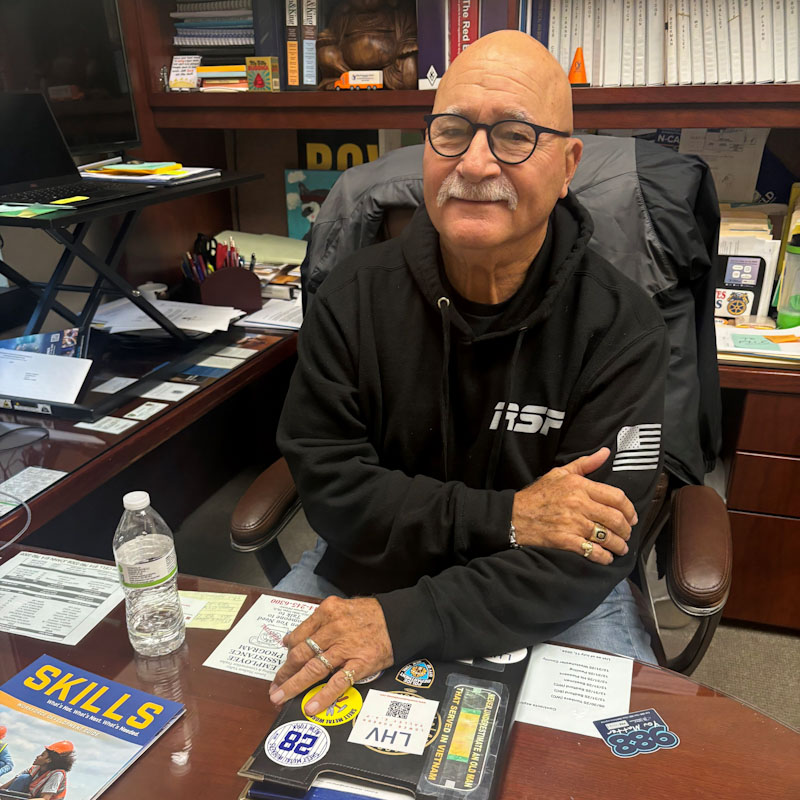
Making a Career of It


Mike Popp, Ph.D.
Job Title: Chairman, Lower Hudson Valley Employee Assistance Program
Former Union Affiliations: New York City Police Department, Laborers International Local 275
Principal Services: Established in 1984, the company now serves more than two dozen unions, helping their members and their immediate families secure safe and non-threatening services to overcome substance abuse and other problems that require professional or institutional resources.
Over the past four decades, Mike Popp has channeled the suffering and despair he personally experienced as a young man into the hope and recovery service that has benefitted thousands of people who faced personal or family troubles in their lives. You can hear it the tone of his voice; he has a compassion for people who suffer from substance abuse, from the mounting stress of these increasingly complex times and from the temptation to walk on the darker side of life.
His long career journey includes rank-and-file membership in unions, his own personal troubles and recovery, and, finally, the discovery of the positive gains that counseling and treatment can have. It has rewarded him with the lifelong pursuit of learning and dedication to his union brothers and sisters in his role as chairman of Lower Hudson Valley EAP.
The company is based in the Northern Westchester Town of Yorktown, NY, and serves more than two-dozen union organizations in a multi-state region. It helps union members and company employees find and secure the appropriate counseling and professional assistance they need so they can get their lives back in order and, hopefully, resume their roles as healthy and productive people. Among the organizations it serves are building and construction trade unions and municipal worker unions such as police and fire departments.
As he approaches his 80th birthday in July, he recently shared with refreshing and unvarnished candor the milestones and life forces that guided him on his journey. Much of his empathy for people is a direct result of what he experienced and witnessed from the destruction that addiction, compulsive disorders and personal stress can wreak on a person, as well as family members, close friends and coworkers.
The Early Career
“I grew up in a tenement building in the Bronx. We ran loose. There were no helicopter parents then. We had to figure it out for ourselves. After high school, my father told me to get a job because I wasn’t going to college. He knew someone to call, and I was able to join the meat cutters union. Not long afterward, I was drafted into the Army.”
When he returned from active duty, he joined the New York City Police Department in 1968, graduating from the Police Academy with great hope and promise. But his career in law enforcement was soon cut short when, while on duty, he was struck by a drunk driver in the Bronx, nearly killing him.
“There was a higher power that was guiding me,” he reflected. “I am someone who has fallen off many stages throughout my life, but I always found a way to climb back on. There was a higher power at work when I got hit by that drunk driver; the higher power didn’t want me to be a cop. Later, as a Union Laborer I thought I finally made it, with a good paying job and benefits. But I had an accident, falling from a scaffold, and went out on disability, which ended my career in the Building Trades. The higher power was guiding me to another place.”
The Pathway Forward
The healing process took several years and put strains on his marriage and relationship with friends. Alcohol served as a psychological crutch for him but a barrier to his relationships with family and friends. He drifted into a job where a co-worker handed him a flyer that advertised counseling for people with alcohol abuse problems. “Alcohol, you see, had a grip on me that was unraveling my life. The co-worker saw it and suggested I look into counseling. Alcohol again nearly cost me my life just as it cost me my job as a cop—because the driver who hit me was drunk. And my closest friend urged me to get help.”
His own treatment turned out to be the key that led him to his current career pathway. “The higher power had another purpose for me,” he reflected. “My first job in the counseling field was at an in-patient rehabilitation facility.”
He then asked, “Could you imagine being discharged as a patient, and suddenly pivoting 180-degrees to find yourself walking back though the front door into the rehab facility as an employee?”
By the late 1980s his journey to help others was in full stride. He enrolled in college courses on Long Island in pursuit of an eventual Ph.D. in Sociology at Columbia University. His career was evolving from mercantile coping and acceptance to missionary fulfillment.
Mr. Popp explained that his background as a retired NYPD cop and union laborer “gave me the power to look someone in the eye and say, ‘I know what you’re going through.’ Relating to people in need and working with the union guys is great, he added. “It’s the easy part of the job.”
The Challenges Ahead
“Today we see a lot of people in need of help to cope with general stress. Like, for instance, the rent is too damn high.”
He continued, “We emphasize working with families and working with their children. Issues that kids have since COVID have probably tripled. They have behavioral problems that we’ve never seen. There’s a lot more ADHD stuff,” he observed, referring to the neurodevelopmental disorder of attention-deficit/hyperactivity disorder, which can cause symptoms of inattention, hyperactivity and impulsivity.
Now there’s the mounting challenge to monitor the rates for treatment services and protect the financial interest of EAP clients. Mr. Popp explained, “We authorize treatment for a lot of the unions so that they don’t get ripped off. They get treatment with no-balance billing so that when the member gets out, he doesn’t get a bill for the balance.”
He continued, “Our company has saved the (union) funds millions of dollars a year because we negotiate the rates for treatment. When someone ends up going into an out-of-network rehab facility in Florida, where they want to charge $8,000 a day, we do single-case agreements with them and get it for $600 or $800 a day.”
The industry sector providing treatment deeply troubles Mr. Popp. “What’s happening to the inpatient and rehabilitation field is alarming,” he said.
“These organizations have really changed over the last few years. There are hedge fund guys running the places whose only interest is making money. You must know the good places. If you don’t have people watching or knowing what these facilities are prescribing for treatment, the funds get ripped off big time.”
He concluded, “We protect the members, and we protect the funds. Part of what we do is to vet the places that offer treatment. We always watch where we’re sending someone.”
By George Drapeau III
THE ELEVATOR PITCH
“As a union-sponsored service, our assistance program is designed to pair employees who are facing personal or family troubles with the right professionals to gain the assistance and guidance they need. We’re here to talk about the problem you’re facing and point you in the direction of someone who can help. Our team of counselors is here during regular business hours. After hours, we have a team of operators who will put you in touch with a counselor immediately. Reach out to us anytime. Thanks.”
Mike Popp, Chairman
Lower Hudson Valley E.A.P.
3505 Hill Blvd.
Yorktown Heights, NY 10598
(914) 245-6300
